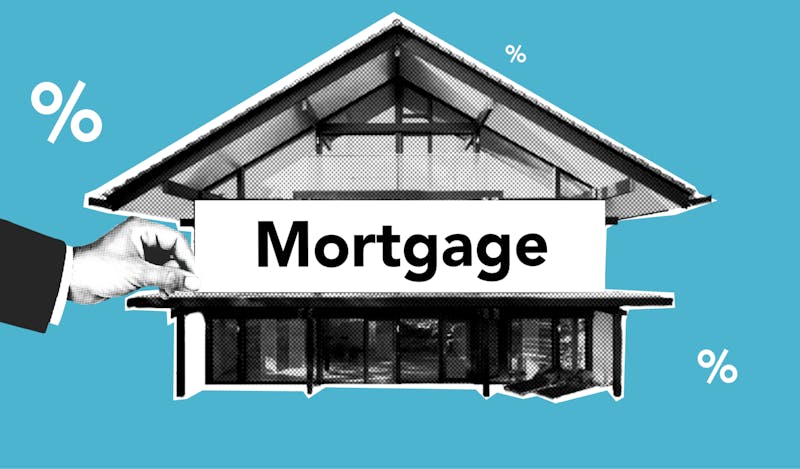In our previous discussions, we’ve explored the intricacies of residential mortgages. Now, let’s shift our focus to a topic that’s equally important for many Canadians – the world of homeownership. What are the essential tips for first-time homebuyers? This comprehensive guide is dedicated to answering that question, offering essential advice and tips to navigate the homebuying process for beginners.
1. Understanding Mortgage Terms
For first-time homebuyers, understanding mortgage terms is essential. Familiarize yourself with concepts like fixed vs. variable-rates, amortization, and pre-approval. Knowing these terms will help you make informed decisions and ensure you choose a mortgage that aligns with your financial situation.
Canada offers a range of mortgage products, from conventional mortgages to those insured by the Canada Mortgage and Housing Corporation (CMHC). Investigate different lenders and compare rates. Remember, a lower interest rate can significantly reduce the total cost of your mortgage over time.
2. Saving for a Down Payment
A significant step in the homebuying process for beginners is saving for a down payment. The more you can save, the less you’ll need to borrow, reducing your mortgage payments and potentially avoiding additional insurance fees. Aim to save at least 20% of the home’s value to avoid extra costs.
3. Budgeting for First-time Homebuyers
Budgeting is critical. It’s not just the mortgage you need to consider, but also property taxes, utilities, insurance, and maintenance costs. Ensure your budget reflects the true cost of homeownership.
4. Choosing the Right Neighbourhood
Selecting the right neighbourhood is crucial for your satisfaction and property value. Consider factors like safety, proximity to work, schools, amenities, and potential for future development.
5. Importance of Home Inspections
Never skip the home inspection. This step can uncover potential issues that could cost you significantly in the future. It’s a small investment for peace of mind and a negotiating tool in the homebuying process.
6. Working with Real Estate Agents
Engaging with a knowledgeable real estate agent can be invaluable, especially for first-time homebuyers. They can provide insights into the market, help in choosing the right neighbourhood, and assist in negotiation strategies for homebuyers.
7. Maintaining a Good Credit Score
A good credit score, typically ranging from 660 to 900, can secure you a better mortgage rate. Aim for a score above 700 to increase your chances of getting favorable terms. To achieve and maintain a good credit score, pay your bills on time, reduce your debts, and regularly check your credit report for any errors or discrepancies.
8. Considering Government Assistance for First-time Homebuyers
In Canada, several government programs assist first-time homebuyers, like the Home Buyers’ Plan (HBP) and the First-Time Home Buyer Incentive. Explore these options to see if they can help you purchase your home.
9. Negotiation Strategies for Homebuyers
Don’t be afraid to negotiate. Whether it’s the price, closing date, or terms, a good negotiation strategy can save you money and make the process smoother. It’s important to enter negotiations with a clear understanding of your maximum budget and must-have features, as this will guide your discussions and decisions. Furthermore, researching comparable property prices in the area and being informed about current market conditions can strengthen your position, allowing you to negotiate from a place of knowledge and confidence.
10. Understanding Closing Costs
Be prepared for closing costs, which can include legal fees, land transfer taxes, and other administrative expenses. They typically range from 1.5% to 4% of the home’s purchase price. It’s essential to budget for these costs in advance, as they can be a significant expense. Additionally, understanding what these costs entail and discussing them with your real estate agent or lawyer can help ensure there are no surprises at the closing table.
11. Homeownership Responsibilities
Understand that homeownership comes with responsibilities. Regular maintenance is key to preserving your home’s value and preventing costly repairs down the line. This includes tasks such as routine cleaning, seasonal upkeep like snow removal or lawn care, and regular checks on major home systems. Being proactive about maintenance not only helps in keeping your home in top condition but also in identifying potential issues before they become major problems.
12. Planning for Long-Term Affordability
Ensure that your home choice is sustainable for your long-term financial health. Consider future changes in your income, potential family expansion, and lifestyle changes. A home that’s affordable now should also be manageable in the future.
13. The Role of a Lawyer in Homebuying
Involving a lawyer early in the homebuying process can be immensely beneficial. They play a crucial role in reviewing the purchase agreement, ensuring there are no legal issues with the property, and handling the closing process. This legal expertise can safeguard against unforeseen legal problems.
14. Understanding Property Taxes
Property taxes are an ongoing expense that can vary greatly depending on your location and the value of your property. Research local tax rates and factor these costs into your overall budget. It’s also important to understand how property assessments work and how they can impact your taxes.
15. Preparing for Utility Costs
First-time homebuyers should also budget for utility costs, which include electricity, water, gas, and waste services. These costs can vary depending on the size of your home, its efficiency, and your usage. Consider energy-efficient appliances and systems to help reduce these expenses.
16. Evaluating the Potential for Resale
While it may seem premature to think about selling your first home before you even buy it, understanding its potential resale value is important. Consider factors like future developments in the area, the school district, and overall appeal to future buyers. A home that is a good investment can offer financial benefits if you decide to sell in the future.
17. Exploring Insurance Options
Home insurance is essential for protecting your investment. Look into comprehensive insurance policies that cover not just the structure, but also your possessions and liability. Compare different insurance providers and understand what is and isn’t covered in standard policies.
18. The Importance of an Emergency Fund
As a first-time homebuyer, it’s crucial to have an emergency fund. Owning a home can come with unexpected expenses, such as repairs or maintenance issues. An emergency fund ensures you’re financially prepared for these unexpected costs without having to rely on credit.
19. Being Realistic about Home Improvement Costs
If you’re considering a fixer-upper, be realistic about the costs and effort involved in home improvements. Budget for both time and money and understand your own skills and limits. Sometimes, what seems like a small project can turn into a costly and time-consuming renovation.
20. Monitoring Interest Rates
Interest rates can significantly impact the cost of your mortgage. Keep an eye on the Bank of Canada’s rate announcements and market trends. Understanding how interest rates might change can help you decide whether to choose a fixed or variable-rate mortgage.
21. Attending Homebuying Seminars or Workshops
Many communities and financial institutions offer seminars or workshops for first-time homebuyers. These can be valuable resources for understanding the homebuying process, financial planning, and what to expect during each stage of buying a home.
22. The Benefit of Pre-Payment Privileges
Look for mortgages that offer pre-payment privileges. These allow you to pay off your mortgage faster without incurring penalties. Even small additional payments can significantly reduce the total interest paid over the life of the mortgage.
23. Embracing Patience in the Homebuying Process
Finally, be patient. The process of buying your first home can be lengthy and sometimes frustrating. It’s important not to rush into a decision. Take your time to find the right property, secure the best financing, and make an informed choice.
Common Mistakes for First-time Homebuyers
One common mistake is overstretching financially. Stick to your budget and don’t let emotions drive your decisions. Another frequent error is not researching the market thoroughly. Many first-time buyers jump into a purchase without fully understanding market trends or comparing different neighborhoods. This lack of research can lead to paying too much for a property or buying in an area that doesn’t meet long-term needs. It’s essential to take the time to understand the market, the growth potential of different areas, and how these factors align with your personal and financial goals.
Navigating the journey of your first home purchase can be daunting, but with the right preparation and knowledge, it can also be an exciting and fulfilling experience. Remember, take your time, do your research, and don’t hesitate to seek advice from professionals. Welcome to the rewarding world of homeownership!



